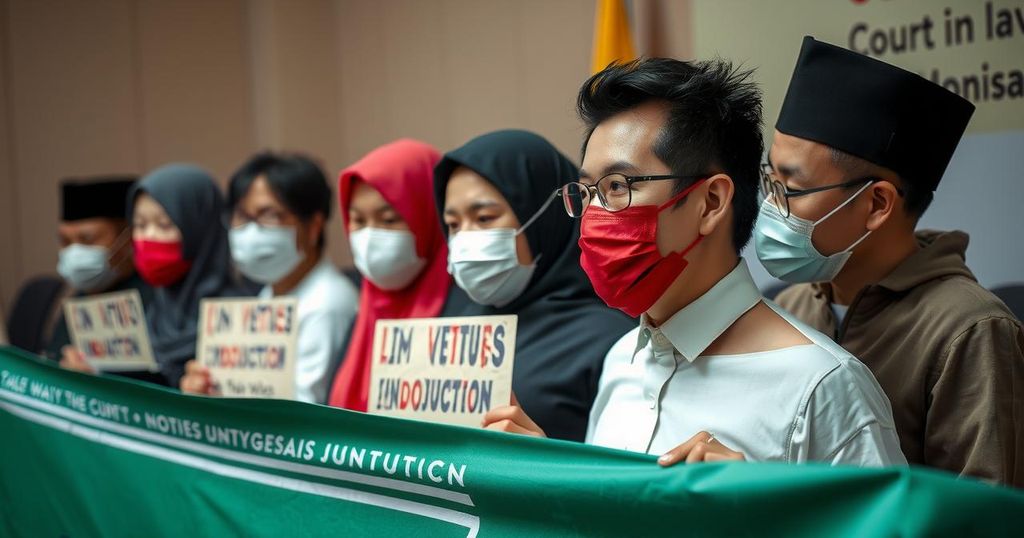Indonesia’s Court Weighs Universal Jurisdiction for Human Rights Violations

Indonesia’s Constitutional Court is deliberating a petition to amend human rights laws, enabling the prosecution of Myanmar’s military under universal jurisdiction for alleged human rights abuses. The amendment would allow Indonesia to hold foreign nationals accountable for international crimes, reflecting its constitutional commitment to promoting peace and justice. Activists view this as a critical advancement in regional human rights protections.
The Indonesian Constitutional Court is currently reviewing a petition to amend the nation’s human rights law, which would enable the prosecution of Myanmar’s military leaders under universal jurisdiction for alleged human rights violations since their coup in 2021. Should the court permit this amendment, Indonesia’s legal system would gain the ability to address international crimes, thus paving the way for investigations and potential trials of perpetrators from other countries for serious offenses committed elsewhere. The panel of nine judges has adjourned to consider amendments to the petition, highlighting the significance of this legal change. Notable petitioners include former Attorney General Marzuki Darusman and former Judicial Commission chairman Busyro Muqoddas, alongside organizations like the Alliance of Independent Journalists.
Article 5 of Indonesia’s Human Rights Tribunal Law currently allows the tribunal to investigate human rights violations committed by Indonesian nationals, but the petition seeks to expand this authority to encompass foreign nationals as well. Lawyer Feri Amsari expressed hope that the court would uphold the case, emphasizing Indonesia’s constitutional obligation to promote global peace and justice. He asserted, “The state has the responsibility to protect victims of massive and systematic crimes against humanity, regardless of national boundaries.”
This pursuit for universal jurisdiction is particularly pertinent given Myanmar’s lack of engagement with the International Criminal Court, due to its non-signature of the Rome Statute. The military coup has led to the deaths of over 2,300 people, prompting regional criticism from ASEAN members regarding the failure of the Myanmar military to adhere to a five-point consensus aimed at mitigating violence and fostering dialogue. Activists view the petition as a crucial step toward enhancing human rights protections across Southeast Asia, with hopes that a favorable ruling would deter human rights violations and emphasize the principle of accountability.
The issue at hand centers on Indonesia’s consideration of universal jurisdiction, which would allow it to hold foreign perpetrators accountable for human rights abuses committed beyond its borders. This legal doctrine empowers nations to prosecute serious international crimes, such as war crimes and crimes against humanity, irrespective of the nationality of offenders or where the crimes occurred. Given the ongoing crisis in Myanmar and the severe human rights violations reported there since the military’s takeover in February 2021, activists are advocating for this legal framework to ensure justice and accountability.
The Indonesian Constitutional Court’s potential endorsement of universal jurisdiction represents a pivotal moment for human rights advocacy both within Indonesia and across Southeast Asia. If approved, this legal framework would enable the prosecution of foreign offenders for serious abuses committed abroad, aligning with Indonesia’s constitutional mandate to promote global justice. The implications are significant, potentially serving as a deterrent against human rights violations and reinforcing a commitment to accountability on the international stage.
Original Source: www.benarnews.org








